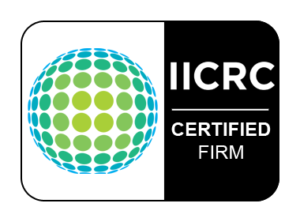Toxicity of microplastics in your home
Toxicity of microplastics in your home – Microplastics Pose a Looming Threat to Human Health
At this time the impacts of microplastics in our environment are well known but only recently are the implications on human health being found, https://pubs.acs.org/doi/10.1021/envhealth.3c00052 Research indicates that microplastics can leach toxic chemicals, such as bisphenol A (BPA) and phthalates, which have been linked to a range of health issues, including reproductive disorders, endocrine disruption, and carcinogenic effects, https://www.weforum.org/stories/2018/06/microplastic-pollution-in-air-pollutes-our-lungs/
Moreover, the ingestion of microplastics through contaminated food and water poses a significant health risk. These particles can accumulate in the human body, potentially causing inflammation, oxidative stress, and cellular damage. Emerging studies suggest a correlation between microplastic exposure and adverse health outcomes, underscoring the urgency of addressing this silent threat.
More recently microplastics have been found in our lungs, our blood, our feces and even in breast milk.
Plastic and Why Reusable Alternatives are Imperative
As the world evolves people are finding it more and more difficult to use sustainable, and usually more costly, products where possible. Plastic has become ubiquitous in our daily lives yet such seemingly innocuous products have a devastating impact on our environment and health. Furthermore, their role in the proliferation of microplastics poses an insidious threat to human well-being.
Plastic doesn’t decompose in the way food and paper do. Instead, it breaks down into tinier and tinier pieces. When these pieces shrink below five millimeters in size – about the width of a small paperclip – they become what’s known as microplastic.
Microplastics smaller than a micrometer are called nanoplastics, small enough to breach cell barriers.
As plastic is one of the most widely used materials in the world, microplastics have found their way into nearly everything, including animal products, water and even air.
Because of microplastics’ size, you may not be able to avoid exposure completely. But there are ways to reduce how many microplastics get into your body, https://mapleleafmold.ca/microplastics-removal-services/
Breaking Free from Plastic For a Sustainable Future
Plastic epitomizes the unsustainable practices that pervade our modern society. From polluting oceans to threatening human health, their impact reverberates far beyond their utility. As stewards of the planet, it is incumbent upon us to make choices with this mind and choose sustainability instead of convenience.
Tips to reduce exposure
- Dust and HEPA vacuum regularly. Removing excess dust from your house can help cut down on the amount of microplastic fibers in the dust you could be breathing or otherwise consuming.
- Avoid drinking from disposable plastic water bottles. If you have no choice, try to keep them out of the sun, in a cool, dry environment. Disposable plastic water bottles degrade very easily in response to temperature change or friction.
- Filter your water. Due to widespread use and pollution of plastic, water can sometimes contain microplastic particles. Home water filters can be effective at reducing many contaminants, including microplastics.
- Avoid plastic cutting boards. There are plenty of alternatives to use, like wood, glass and steel.
- Microwave your food in glass containers, rather than plastic or takeaway containers, which can release millions of microplastic particles into your food.
By embracing reusable organic products and advocating for systemic change, we can chart a course towards a cleaner, healthier future, https://mapleleafmold.ca/how-can-i-reduce…to-microplastics/




Maple Leaf Environmental Services Inc. – Leaders in Microplastic reduction and removal services.
Call 416-254-7256 to talk with us about your issue anytime.
Maple Leaf Environmental Services Inc. is a certified mold / asbestos / microplastics assessment, removal and environmental air analysis company located in Toronto that uses certified technicians for all testing, abatement and remediation projects.
We are a professionally accredited firm experienced in testing, verifying and removing Mold / Asbestos / Microplastics / Lead and other environmental contaminants.
